| |
|
|

Scholars-in-residence
program
Presentations are free; kosher meals moderately priced
● Rabbi
Yakov Horowitz, founder, Project Y.E.S. (Youth Enrichment Services)
for
Agudath Israel, Jan. 4-5
● Rabbi Ari
Kahn, director, Foreign Student Programs,
Bar Ilan University, Israel, Feb.
22-23
Call us for details at (619)
287-9890, Reserve Shabbaton meals before January 2
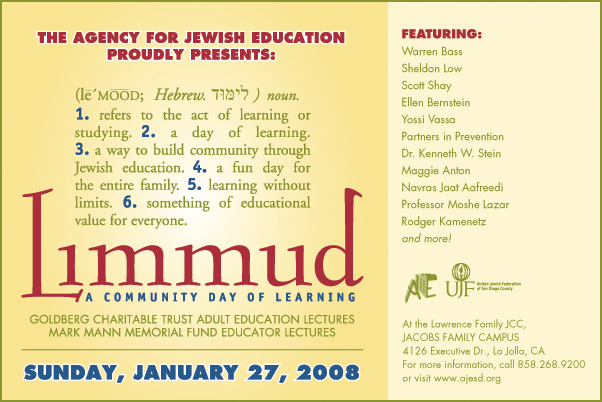
LETTER FROM JERUSALEM
What about Israeli-on-Israeli violence?
By Ira Sharkansky
 JERUSALEM—In response to my last column indicating a continued decline in Israelis killed by Palestinian violence, one of my American friends asked about Israeli murders. JERUSALEM—In response to my last column indicating a continued decline in Israelis killed by Palestinian violence, one of my American friends asked about Israeli murders.
His question sent me to the Statistical Yearbook, and to the American equivalent for comparative data.
I found that the Israeli police recorded 189 cases of murder in a recent year, and the Americans 17,000. The incidence per
Ira Sharkansky
100,000 population was 2.6 in Israel and 6.3 in the United States.
Some years ago Israel's population was about the size of metropolitan Detroit. Then I found more murders per weekend in Detroit than all year in Israel.
My most recent column indicated that the annual incidence of Israelis killed by Palestinian violence declined from 452 in 2002 to 13 in 2007.
My friend's letter also prompted me to look at traffic deaths. Israeli alarmists claim that our drivers are the worse in the world. I did not do a comprehensive survey, but I did find that they could be no worse than the second most dangerous, after American drivers. The numbers show about 6 road fatalities per 100,000 in Israel, and about 14 in the US. I suspect the occasional shooting or knifing associated with an argument about a parking space affects the rate of murders, and not traffic deaths.
Alcohol is probably the best explanation for the difference in traffic deaths. Even with a spike in the sale of vodka with the arrival of one million immigrants from the former Soviet Union, Israelis still drink less than Americans.
I closed my message to the friend who inquired about murders with a suggestion that he come and visit. It would be safer here than in his home town, including a more secure ride from the Tel Aviv airport than to the airport from which he would depart.
The day after I sent my optimistic message, a brochure entitled, "Guide for an Emergency Situation," produced by the Homeland Security department of the IDF, arrived in Israeli mailboxes.
I recalled getting something similar during the 1950s or 1960s in the United States, concerned with preparing for a nuclear attack.
The current Hebrew version (with an invitation to call a toll free number for material in English, Russian, or Arabic) does not deal with a nuclear attack, but focuses on picking out a space in one's home most likely to be secure, stocking water, food, and first aid supplies, as well as material that can be used to seal the space against poison gas. Those who read only French, Spanish, Amharic, Turkish, Romanian, Bulgarian, Portuguese, or whatever are likely scratching their heads.
The brochure has separate chapters for the parents of children in various age groups, as well as the physically limited, autistic, and the aged. I read the last one closely.
Being good citizens, we followed the instructions, and held a family discussion about the best place in the house to prepare for an emergency. I am expecting a shipment of bottled water and canned goods, along with plastic sheeting and tape to keep out the bad stuff.
Until a year or so ago, we all had gas masks. We had been advised to open the packages and get ready for something in the early days of the American attack against Iraq. The IDF collected them for refurbishing, and to update the syringe with an antidote against gas.
Then Syria began to flex its muscles, which include missiles capable of carrying gas. The IDF announced that it could not resupply us quickly with gas kits without a lot more money. As a political scientist who did a dissertation on budget strategies, I wondered if it was a political ploy, or if should I feel more vulnerable.
While writing this column my email pinged with a note from a scholar affiliated with a distinguished British university.
He begins:
"In reality, there is no fundamental difference between the ultimate goals of Hamas and the PLO vis-à-vis Israel: Neither accepts the Jewish state's right to exist and both are committed to its eventual destruction. The only difference between the two groups lies in their preferred strategies for the attainment of this goal. "
He concludes:
"The Israeli government and the international community will be dangerously deluding themselves in continuing to view Abbas' adamant refusal to fight terrorism as a reflection of political weakness (as they did with Arafat in the early Oslo years) and his avowed commitment to 'the right of return' as a bargaining chip or lip service. To deny the depth of the PLO's commitment to Israel's destruction is the height of folly, and to imagine that it can be appeased through Israeli concessions is to play into its hands. Only when Palestinians reconcile themselves to the existence of the Jewish state and eschew their genocidal hopes will the inhabitants of the Holy Land, and the rest of the world, be able to look forward to a future less burdened by Arafats and their gory dreams."
I think that my American friend can still risk a visit, but there are no guarantees.
 |

THE JEWS DOWN UNDER
Australian Red Cross and Christian leaders slam Israel policy on return from trip
By Garry Fabian
CANBERRA—A report released by the International Committee of the Red Cross (ICRC) has been vigorously challenged by local Jewish groups.
The Israeli Embassy, the NSW Jewish Board of Deputies and the Australia/Israel & Jewish Affairs Council (AIJAC) have criticised the supposedly non-partisan organisation for ignoring the full facts about the situation in the Palestinian territories and for politicising its role.
The Israeli Embassy said the report failed to understand the political situation in the Palestinian territories.
“The restrictions on Gaza are a consequence of the dire security situation. The Israeli Defence Forces in implementing these restrictions has sought to balance the security issues against the humanitarian issues,” said Dor Shapira, embassy spokesperson.
He noted that the daily launch of Kassam rockets on the southern Israeli town of Sderot was only briefly mentioned in the report.
AIJAC international and community affairs director Jeremy Jones also criticised the report’s claims.
“If people are not willing to look at the entire picture of what Hamas promises and what it is delivering and Israel’s many attempts to bring about a fair and just settlement, then it can be very easy to draw false conclusions to misdirect attempts to rectify the human tragedy,” Jones said.
He added that the people of Gaza were not innocent bystanders because they had voted for Hamas.
Jones said the charter of Hamas called for the “violent destruction of Israel” and that “the ethnic cleansing of the Jewish majority from the entire Holy Land was a program for genocide”.
Board of Deputies CEO Vic Alhadeff responded to the ICRC report by saying, “The fundamental issue is that Israel’s activities in Gaza and the West Bank are predicated on one imperative – to stop its citizens being killed by terrorists.”
Last week nine Australian Christian church leaders, including Anglican primate Archbishop Philip Aspinall, returned from Israel and the Palestinian territories and also issued a statement criticising Israel’s defence strategies.
Executive Council of Australian Jewry (ECAJ) president Robert Goot said the group had “overlooked fundamental aspects of the conflict between Israel and the Palestinians and notably failed to mention Hamas, let alone its refusal to disavow murderous attacks aimed at Israeli civilians”.
Goot said the church leaders’ criticism of Israel’s right to defend its citizens was “one-sided and unfair.”The Christian church group implied that Israel had other defence options available, but did not specify what it thought these might be, he said.
The group also criticised the restriction on Palestinian movements, but Goot said the church leaders did not appear to recognise the restrictions had greatly reduced “terrorist bombings that have killed and maimed thousands of Israeli civilians”.
Jewish schools featured in top 10 listing
MELBOURNE, Australia—Four Melbourne Jewish schools have featured in the list of top 10 private schools in this year’s Victorian School Certificate rankings.
Bialik College led the way, finishing second on the list of private schools. It was followed closely by Leibler Yavneh College in fourth place and Beth Rivkah Ladies College at number six, one spot ahead of Mount Scopus College.
On the overall list Bialik was fourth, trailing only selective schools MacRobertson Girls High School and Melbourne High School, and Korowa Anglican Girls’ School.
The median study score at Bialik this year was 37 out of 50, the same as in 2006 and according to the school, almost 35 per cent of study scores were over 40. The study scores represents the mark in a particular subject before scaling.
The King David School and Yeshivah College both finished outside of the top 10 and both had median study scores of 34.
Calling children to act on climate change
BRISBANE - More than 100 people attended a function in Brisbane to honour long-time Jewish community servant John Lipski for his significant contribution to Queensland Jewry.
Henry Malecki, the president of the State Zionist Council of Queensland (SZC), hosted the event while Dr John Skala, president of United Israel Appeal (UIA) Queensland, and Gail Paratz, president of Queensland Jewish National Fund (JNF), made speeches in Lipski’s honour.
Lipski was presented with a certificate from Israeli Ambassador Yuval Rotem and there was a special movie presentation that included photographs of Lipski’s family before the Holocaust.
Lipski and his wife Ida, both Holocaust survivors, arrived in Brisbane in 1950 from Lodz, Poland. He told those gathered at the function that he and his wife arrived with nothing.
Since his arrival, Lipski has held leadership roles in the SZC, Brisbane Hebrew Congregation, JNF and a host of other communal organisations.
Many of the Lipski family came from Sydney and Melbourne for the event and his granddaughter made a speech.
Dux of the school
ADELAIDE -The small community in Adelaide does not have a Jewish high school but that does not prevent local Jewish teenagers from excelling in their final year.
Lauren Cohen, who attended Adelaide’s prestigious Pembroke School, was awarded dux (leader) of the school’s International Baccalaureate program last week.
Cohen, one of only a handful of Jewish students at the school, excelled in the program, which is an international equivalent of matriculation that requires students to complete a broad range of subjects, as well as write an extended essay and undertake community work.
She is hoping to study medicine at either the University of Melbourne or Monash University in 2008.

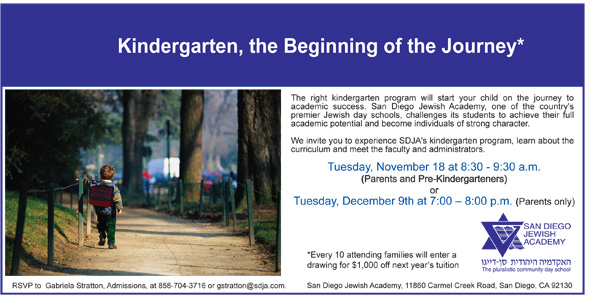
Readers share opinions on whether we should teach children about the Shoah
By Dov Burt Levy
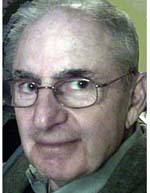 SALEM, Massachusetts—Why do people write opinion columns? First, it's a job. If you work for the New York Times it can bring fame and fortune. Books, talk shows, $25,000 speeches. Those goodies don't fly in most other places. We do it, or at least I do it, because I want to open conversations on matters I think important. SALEM, Massachusetts—Why do people write opinion columns? First, it's a job. If you work for the New York Times it can bring fame and fortune. Books, talk shows, $25,000 speeches. Those goodies don't fly in most other places. We do it, or at least I do it, because I want to open conversations on matters I think important.
Example: My column about whether children should be exposed to Holocaust education hit upon a subject that lots of people have feelings and a variety of opinions about. Here are some marvelous responses that go way beyond what I wrote: A grandmother wrote, "After reading your column, I asked my 12-year-old grandson if he knew about the Holocaust and if he thought children
Dov Burt Levy
should learn about it. His answer was yes to both questions. I asked why he thought that. He replied that it is a terrible part of history, but we all, especially Jews, need to know about it. He then asked me, 'Should bad things that have happened all through history be taken out of our history books?'" Now, that's a very smart young man.
A retired college professor from a major university wrote: "My department allotted one day a semester for students in Health Administration to conduct a seminar on any topic relevant to our department's general goals. One time they chose to highlight the Holocaust. A disturbing number of students did not have any idea of the extent of the horrors involved and many had not even heard of it. Mind you, this was a group of 'well-educated,' bright (high GRE scores) students, most working in their field for a number of years… The history of the Holocaust should be in the educational background of every U.S. citizen. The best way to treat it is within the topic of genocide and certainly it should be taught to children."
A mother in Israel: "Holocaust education is a big part of growing up in Israel. What is important for kids to know are ideas about making your own decisions, not 'jumping on the band wagon,' making decisions about what is right and resisting peer pressure, accepting others who are different without concentrating on the horrors. Holocaust education should be age-appropriate. For example, kids under 12 are not allowed to visit Yad Vashem. Holocaust education builds patriotism and prepares the kids for why they will have to be in the army. I understand it is a sort of indoctrination but it's important that kids feel the significance of doing their part for their country."
Another Israeli mother had more mixed feelings: "My daughter has just returned from a school trip to Poland. The class spent most of the last year in preparation for the expedition, to ensure that it would not be a pleasure trip, but a learning experience. I reluctantly agreed to the trip, but I am not convinced that this is the right thing to do or the right time of life to do it. I don't yet know if the experience was valuable for her...there is so much nationalism involved in these expeditions that I am put off. I simply am not sure."
From an Israeli girl who made the Poland trip a year ago: "Kids need to learn about the Holocaust, about what happened, without telling the gory details. Kids should learn about efforts by Jews and others to fight against genocide, and also about indifference, or what wasn't done by the people around."
From a retired high school principal, "I'm less interested in what the Germans did to Jews, (although it is certainly important to teach — and in detail). I'm interested in teaching about the Jews’ response... All these "small" stories of individuals who did what they did to save a companion from starvation or to keep their human dignity and self-respect."
From an American rabbi: "I fully agree with the sentiment that if we don't remember and teach remembrance, Hitler will have killed us twice."
Finally, from an American grandmother: "Yes, the Holocaust is very important, but the most important is learning about the ‘Joys of Being Jewish.’
So now you see, dear reader, why I love this work. Apologies to those whose responses I had no room to include.
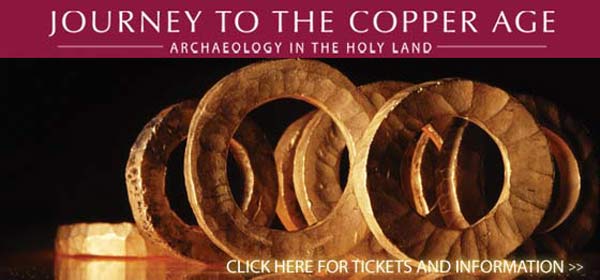

A HERALD IN ZION
A glorious chorus brought in New Year
By Dorothea Shefer-Vanson
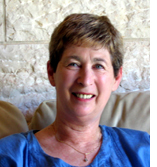 MEVASSERET ZION, Israel--Catching the last night of the proms on television on a New Year’s Eve, I found that the final chorus was not ‘’Land of Hope and Glory’ nor Henry Wood’s sea shanties but Parry’s setting of Blake’s ‘Jerusalem.’ To hear it sung with gusto by the thousands-strong audience was very touching. MEVASSERET ZION, Israel--Catching the last night of the proms on television on a New Year’s Eve, I found that the final chorus was not ‘’Land of Hope and Glory’ nor Henry Wood’s sea shanties but Parry’s setting of Blake’s ‘Jerusalem.’ To hear it sung with gusto by the thousands-strong audience was very touching.
Throughout the ages, physical and spiritual Jerusalem has captured the imagination of millions, triggering emotions in the hearts of people of all races and creeds.
Dorothea Shefer-Vanson
To sit in a concert hall in Jerusalem and hear a choir trill the last notes of Faure’s Requiem, intoning the name of the city in a divine, celestial chorus is an unforgettable experience. Equally poignant is hearing the opening aria of Handel’s Messiah, where the words of Isaiah speak of comfort for Jerusalem and an end to its warfare. And there are many other examples.
The King James version of the Bible has been adopted by Christians as its original, true version. They find it hard to grasp that it is an erratic, often inaccurate translation, irrespective of its intrinsic value as literature. But whatever hold the city has had on Christians, as exemplified by the Crusaders, or on Moslems, who fought tenaciously to recapture it, it is we Jews who regard it as our physical and spiritual cradle.
The attempt by Israel’s government more than a decade ago to change the city’s official name to its Hebrew version, Yerushalayim, fell on deaf ears. Stamps were minted and documents were printed, but no-one seemed to take much notice. City names have been changed in the past, as evinced by Istanbul, Mumbai, and Beijing, but not Jerusalem.
Its Arabic name is Al-Kuds, the Holy City, but no-one seems to take much notice of that either. “And was Al-Kuds builded ee’n, in England’s green and pleasant land” just doesn’t have the right ring to it.
|
|

